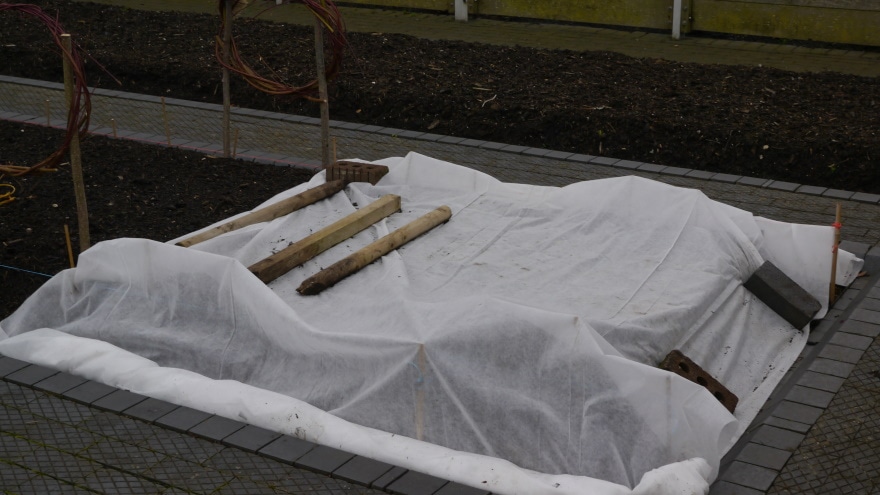Composting is a excellent way to in a natural way get soil and fertilizer for your backyard garden while cutting down on foodstuff squander. At house, composting is extremely popular. Nevertheless, when the days start off to get shorter and colder, numerous people pack up their composting kits and wait for spring to come back. Some gardeners even explain to each other that you can not compost in the winter season, so really do not even hassle.
It is real that not significantly grows in the winter season, but that doesn’t imply you have to uproot your compost pile just because it is chilly out. Can you compost in the winter season? The answer is an complete sure. Here is what to count on if you prepare on composting in the course of the wintertime months.
Your Compost Will Continue To Develop In The Winter
To be powerful, a compost pile needs air, humidity, heat, and composting materials. In most environments, this means producing a basic pile, hole, or bin with the necessary inputs. In the winter, numerous of these aspects lessen. The air receives cold and dry, and the sunlight stops shining as strongly. Although none of this appears very good for composting, it doesn’t cease the composting process or ruin your present compost. All the winter does is sluggish down composting.
So indeed, you can compost in the winter but do not anticipate fast results. Issues that took a pair of months to compost in the summer time could consider 2 times as prolonged to decompose in the winter. But that is completely alright. There is no need to restart your compost every single calendar year due to the fact you consider that the wintertime is not great for the composting method.
Your compost will proceed to produce in the wintertime, and by the finish of the season, you must have some excellent results to include to your spring yard beds. Although composting merely slows in the winter season, there are some suggestions and tricks to help it do well as very best as feasible for the duration of the coldest months of the yr.
4 Tips For Composting In The Winter
1. Try Not To Let Your Compost Freeze
A great deal of men and women currently preserve their compost coated, but it is a excellent concept to go over your compost in the wintertime. Covering the pile will help avert it from freezing. Freezing temperatures will gradual composting down even even more. Even a easy lid or tarp can sometimes be adequate to hold the compost just about that 32-diploma threshold. Even if the compost freezes, it is not that massive of a deal, but it can add to the sluggish composting costs currently common in the winter.

2. Add Moisture If Needed
Winter season can be really dry in some areas, and the dry air can lead to your compost to get rid of dampness. Dry compost will gradual down to a crawl and occasionally even end, so including a tiny little bit of moisture to keep it likely can be useful. You do not need to soak the compost, but ensuring that there is water in the pile will go a prolonged way.
3. Add Worms
Introducing worms to any compost can be a large support, such as in the winter season. Worms aid facilitate the composting approach, and compost with worms degrades more rapidly and creates far better soil. Worms can reside in the wintertime, and as long as your compost pile is deep enough to keep warmth in the centre, the worms will transfer into your out of doors winter compost with no complaint.

4. Consider Moving Your Compost Inside
Your compost doesn’t automatically have to sit on your kitchen counter but shifting compost within during the wintertime can help it carry on to thrive. Compost bins can be moved into a drop or garage with simplicity. The hotter temperatures and absence of weather will preserve the compost chugging together at a good tempo even when the thermometer drops. Cold, dry temperatures also support to preserve smells to a least so the compost won’t be as smelly when it’s within.
Things To Avoid While Composting In Winter
Although it may possibly look like common sense to compost some common wintery products, not every little thing should be dumped into a cold compost pile. Dead logs or branches much more than an inch in diameter should not be composted. Do not place in any variety of evergreen clippings or squander. That signifies no Christmas tree components, no juniper, no holly, and no mistletoe. Even even though these sorts of plants are typical in the winter season, they will throw off the balance of your compost pile and result in it to slow down or even cease composting totally.
No matter what you have been composting in the course of the warm months must proceed to be composted throughout the winter. Do not adjust your practices just because the season has modified. If you compost kitchen area squander, espresso grounds, or manure, maintain carrying out that. You do not require to go and seek out out new issues to compost for the duration of the winter season. Performing so will only toss off your cautiously balanced pile and lessen yields for the spring planting.
Relevant Read through: Can You Compost Corn Cobs? What Ought to You Assume?
Conclusion
Really do not allow the uninitiated idiot you. Compost can happen during the winter season. In reality, if you stick to these ideas and tricks, there is no purpose you will not have a full bin of winter compost fresh and prepared for spring when the temperatures commence to warm back again up. Anticipate wintertime compost to continue slower with significantly less noticeable results than summer season compost, but the approach will continue, rain or glow, snow, sleet, or hail.
Highlighted Picture Credit history: Beekeepx, Shutterstock
Contents
